2023.04.28
On April 26, the 11th Dunhuang Tour – Silk Road International Tourism Festival, co-sponsored by the Ministry of Culture and Tourism and the People’s Government of Gansu Province, held a grand opening ceremony in Zhangye, Gansu. WTA Chairman Zhang Xu, and Zhang Yongxia, a member of the Standing Committee of Gansu Provincial Committee of the CPC and Director-General of the Publicity Department of the Provincial Committee of the CPC, attended and addressed the opening ceremony.
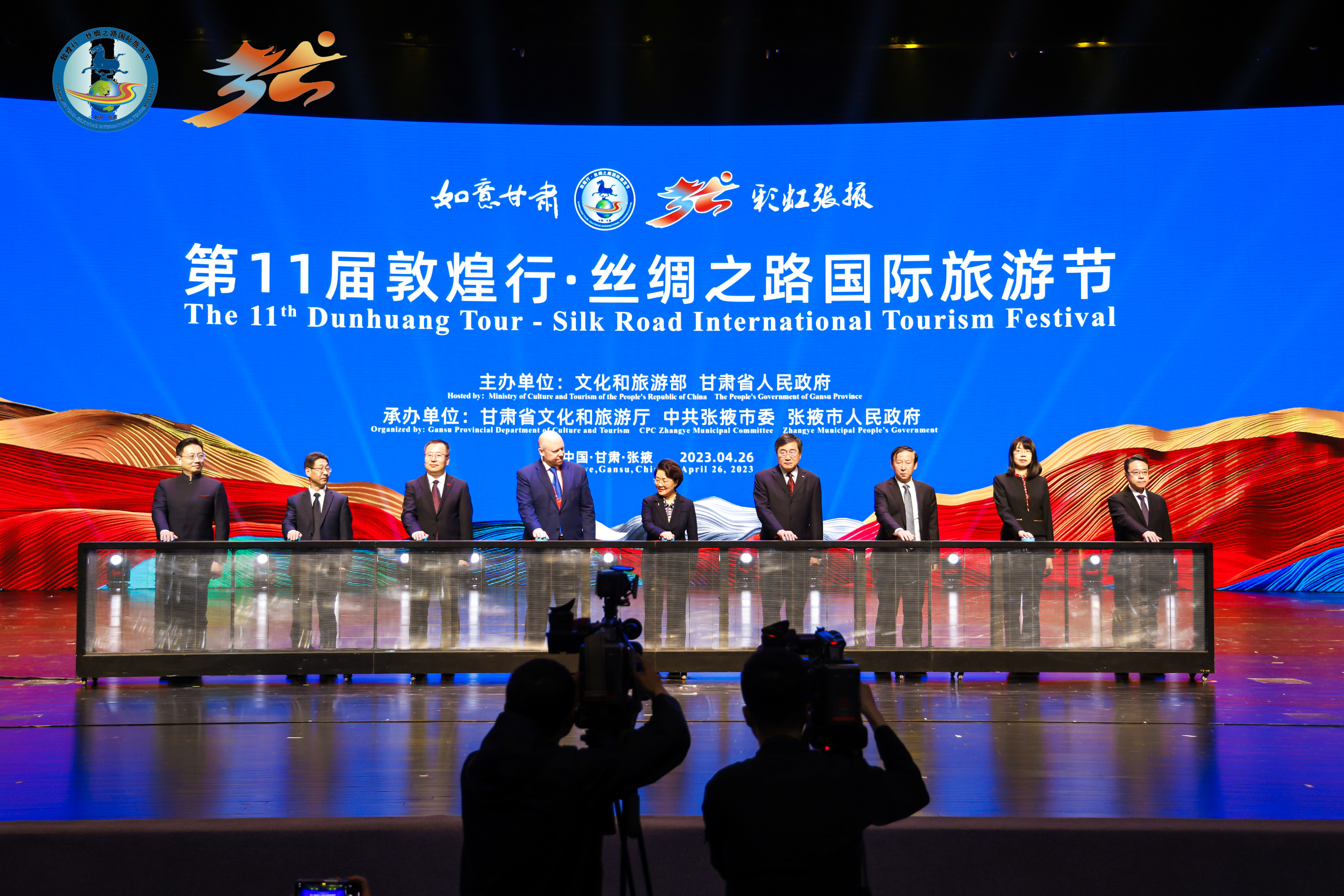 The opening ceremony of the 11th Dunhuang Tour – Silk Road International Tourism Festival
The opening ceremony of the 11th Dunhuang Tour – Silk Road International Tourism Festival
On April 27, the WTA Silk Road Dialogue, co-sponsored by the WTA, Gansu Provincial Department of Culture and Tourism and the People’s Government of Zhangye Municipality, was held in Zhangye. Under the theme of “New Journeys of the BRI: Shared Benefits, Win-Win Cooperation and Closer People-to-People Ties,” the event invited about 200 guests, including domestic and foreign experts and scholars, representatives of WTA members, governments and businesses. They were joined by WTA Chairman Zhang Xu; Yu Hongjun, former Deputy Director-General of the International Department of the CPC Central Committee; Wang Xiaoyang, Deputy Secretary-General of the Gansu Provincial People’s Government; He Xiaozu, Secretary of the Party Leadership Group and Director-General of Gansu Provincial Department of Culture and Tourism; and Lu Xiaoheng, Secretary of Zhangye Municipal Committee of the CPC.
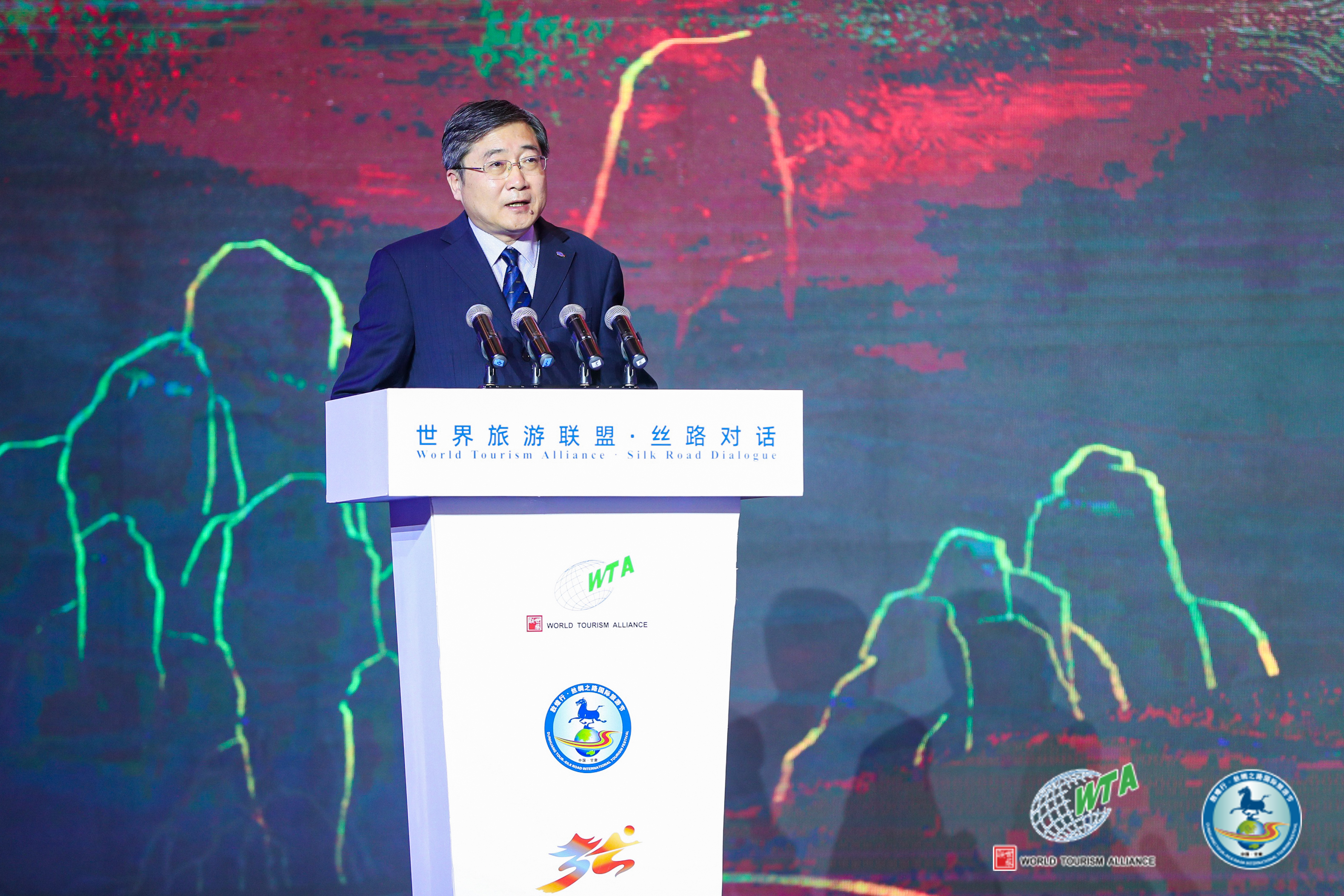 Zhang Xu, WTA Chairman
Zhang Xu, WTA Chairman
According to Zhang Xu, this year marks the 10th anniversary of the launch of the Belt and Road Initiative. Over the past decade, the BRI has closely linked the future of partner countries, and delivered substantial benefits to them through efforts to build a world of common prosperity. The theme this year echoes the mission and vision of tourism development under the BRI. He hoped that the Dialogue would consolidate and build on the achievements of cooperation made in the field of tourism under the BRI, build a regional tourism communication and cooperation platform for Belt and Road countries, and promote international tourism cooperation.
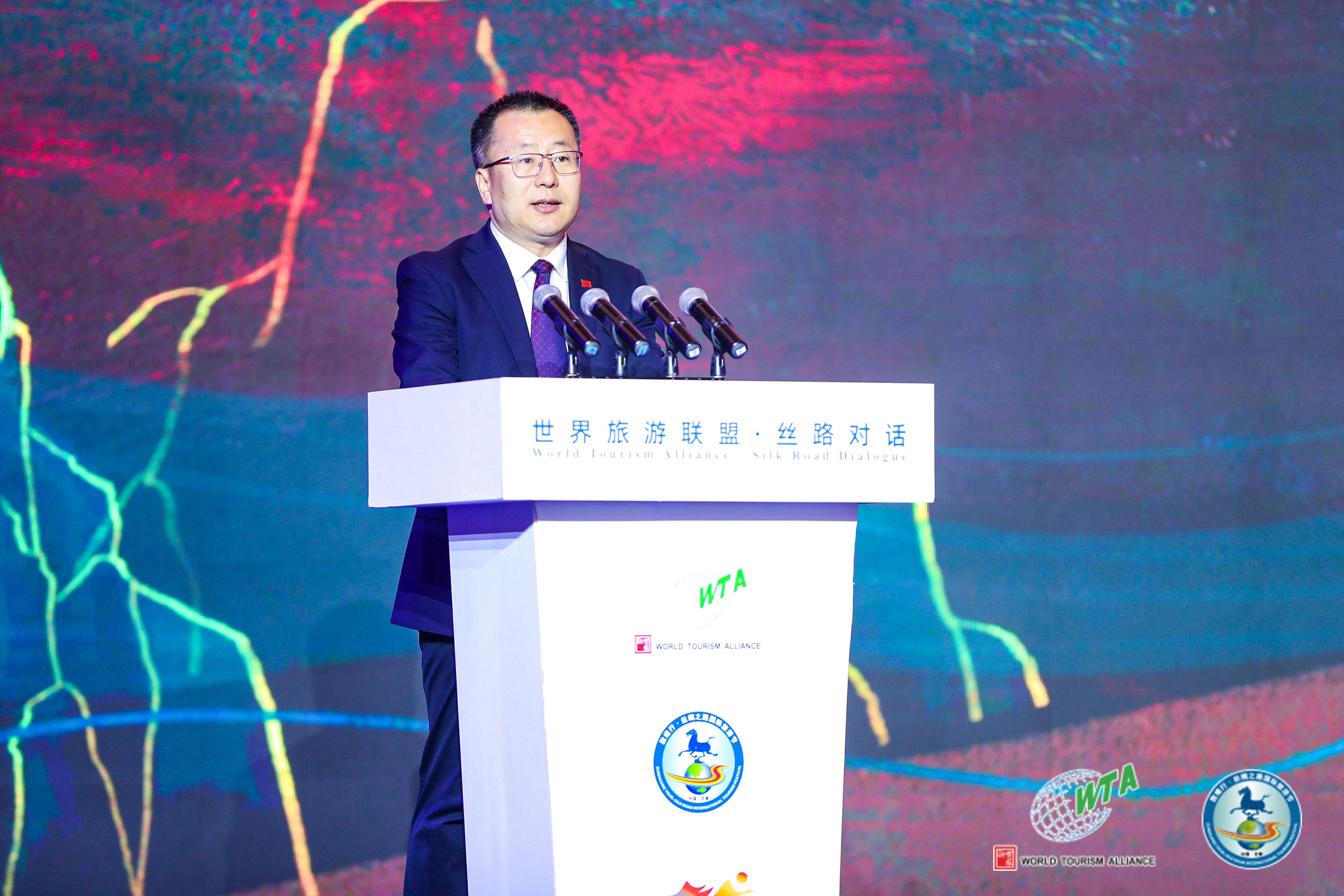 Wang Xiaoyang, Deputy Secretary-General of Gansu Provincial People’s Government
Wang Xiaoyang, Deputy Secretary-General of Gansu Provincial People’s Government
“Friendship between the peoples holds the key to sound state-to-state relations, and heart-to-heart communication contributes to deeper friendship,” said Wang Xiaoyang. To advance the BRI and further cooperation under it, the key is to enhance understanding between different peoples and win their support and participation. And cultural exchanges and tourism cooperation play an irreplaceable role in this regard. He welcomed more visitors to Gansu, to integrate into local community, create more wealth, and build Gansu into a world-class tourist destination, so that the spring breeze of cooperative development will travel far and wide along the Silk Road, and carry with it the image of “Hopeful Gansu.”
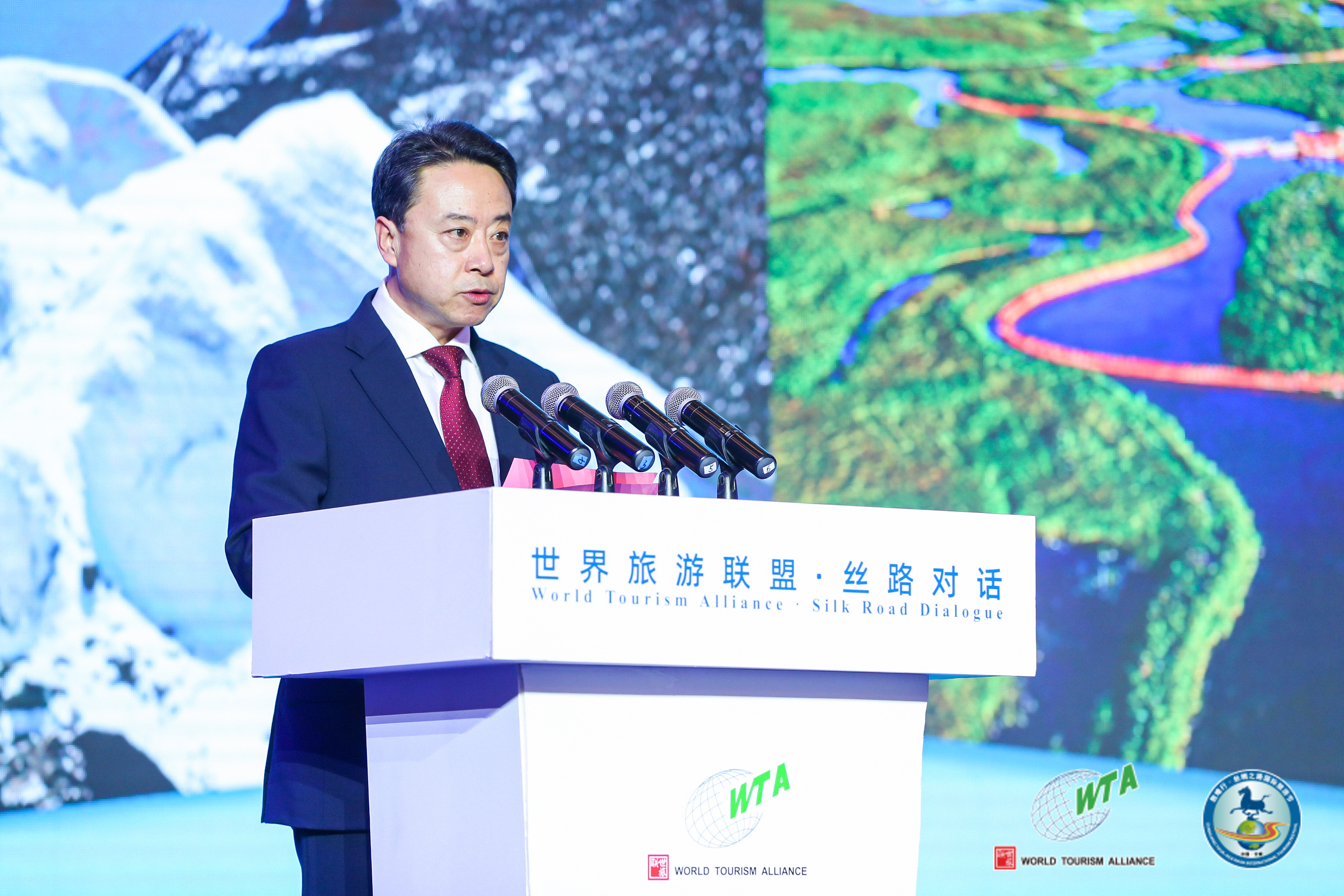
Lu Xiaoheng, Secretary of Zhangye Municipal Party Committee
Mr. Lu first extended a warm welcome to the guests on behalf of the Zhangye Municipal Party Committee and Municipal Government. He then introduced the city’s rich historical and cultural resources, and pointed out that Zhangye was born out of and thrived on the ancient Silk Road, and witnessed its prosperity and splendor. The city will strengthen economic and trade cooperation and people-to-people exchanges with BRI partner countries, tell the story of the Silk Road to a larger audience, display its corridor image in more fields, and strive to deliver a memorable tourist experience for all visitors.
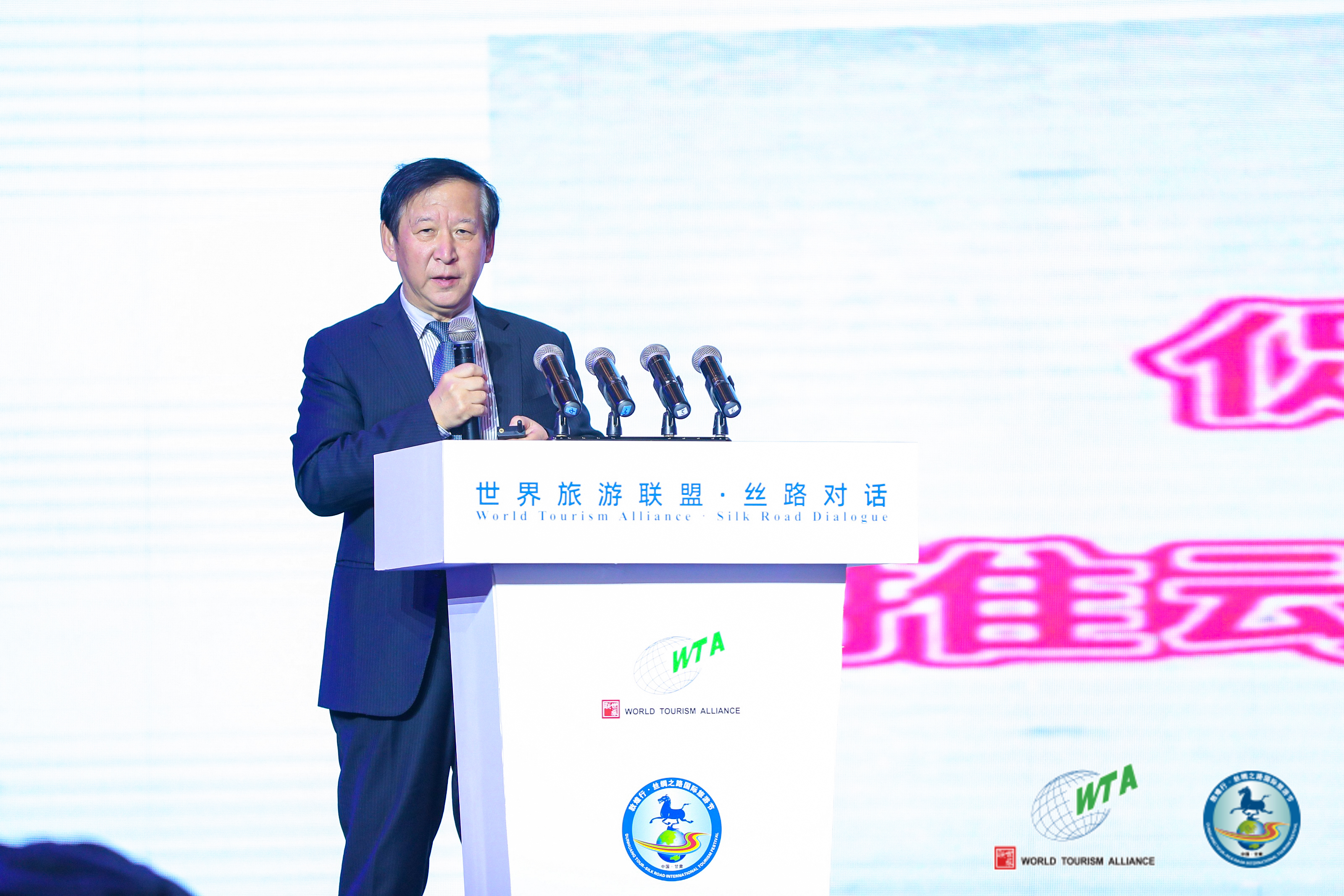 Yu Hongjun, Former Deputy Director of the International Department of the CPC Central Committee
Yu Hongjun, Former Deputy Director of the International Department of the CPC Central Committee
Yu Hongjun delivered a keynote speech entitled “The Belt and Road Is Essentially a Way to Mutual Learning among Cultures.” As a Chinese proposal for common development and a new engine of international cooperation, the BRI is playing an increasingly important role in driving the orderly change of the international landscape. Yu introduced the fruitful results of the BRI in the past ten years, especially in such fields as people-to-people bonds, financial integration, unimpeded trade, facility connectivity, and policy coordination. In the face of changes of a magnitude unseen in a century, the BRI advocated and promoted by China has become a new paradigm of mutually beneficial cooperation in which countries at different stages of development work together, a new path for countries with different historical and cultural backgrounds and different social systems to harmonize their development concepts, and thus a new avenue for human society to move toward mutual learning among cultures.
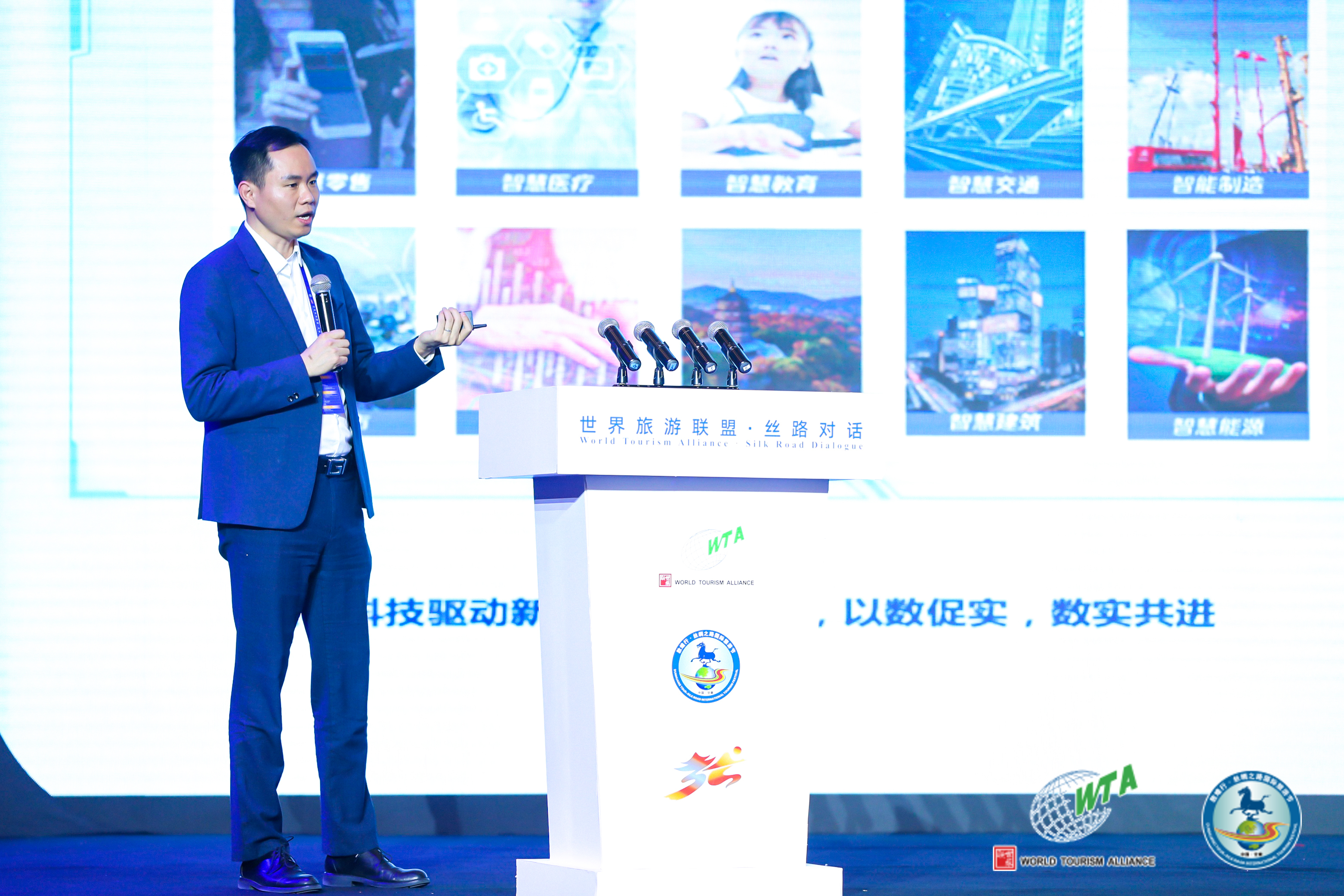 Fang Tengfei, Vice President of Tencent Cloud / General Manager of Cultural and TourismIndustry, Tencent
Fang Tengfei, Vice President of Tencent Cloud / General Manager of Cultural and TourismIndustry, Tencent
Fang Tengfei, Vice President of Tencent Cloud and General Manager of Cultural and TourismIndustry, Tencent, delivered a keynote speech entitled “Digital Silk Road and Innovation and Development of Tourism.” In the past few years, the digital economy has become an important part of the national economy, comprehensively intervening with, influencing, and deconstructing all aspects of our social life, and the proportion of the digital economy in the entire GDP has approached 40%. In this course, digital technology and tourism have been mutually reinforcing. The tourism industry has abundant offline scenes and IP resources, and is a natural scene for the application of digital technology. Meanwhile, digital technology can provide enough impetus in terms of business model, forms and product innovation. Their two-way interplay has opened up new ground for development.
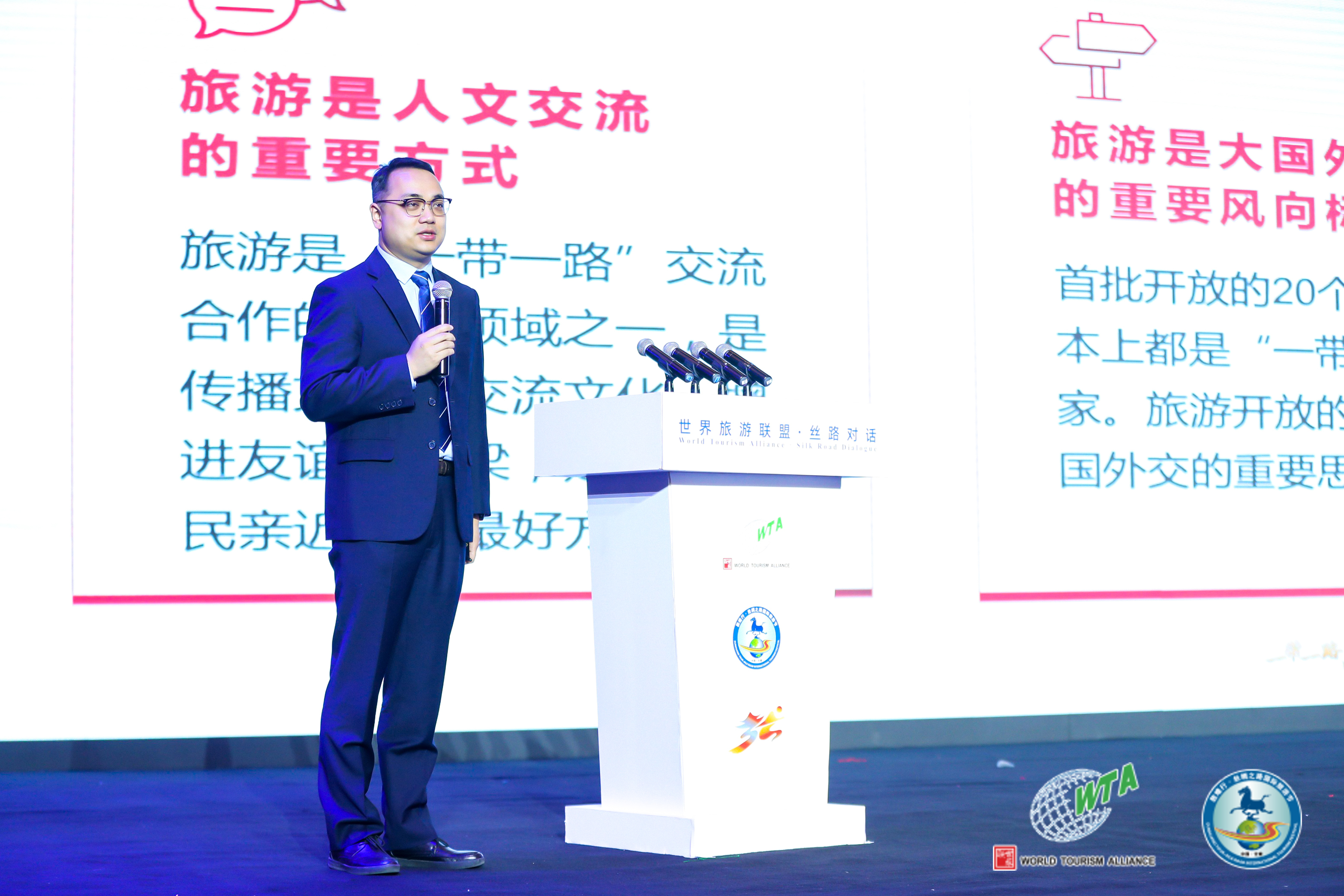 Deng Ning, Ph.D., Professor and Deputy Dean of School of Tourism Sciences,
Deng Ning, Ph.D., Professor and Deputy Dean of School of Tourism Sciences,
Beijing International Studies University (BISU), The Executive Director of a Research Center for Digital Culture and Tourism Research in BISU
Deng Ning, Ph.D., Professor and Deputy Dean of the School of Tourism Science and The Executive Director of a Research Center for Digital Culture and Tourism Research of Beijing International Studies University, delivered a keynote speech entitled “Tourism Education for People-to-People Exchanges and Talent Cultivation under the BRI.” As far as the BRI partner countries are concerned, they are the target markets or sources of tourists prioritized by China for inbound and outbound tourism. Tourism education has a very unique function and significance in improving tourist services, promoting people-to-people exchanges and advancing the BRI. In addition, Mr. Ding shared his university’s practices in tourism education and contributing to the BRI.
 Li Xinyu, Vice President of Trip.com Group
Li Xinyu, Vice President of Trip.com Group
Li Xinyu, Vice President of Trip.com Group, delivered a keynote speech entitled “Inbound and Outbound Tourism Promoting Economic and Cultural Exchanges among BRI Countries.” With the continuous implementation of the BRI in the past decade, inbound and outbound tourism has become an important means to promote economic and cultural exchanges between China and partner countries. It can not only bring huge economic benefits to destination countries, but also promotes people-to-people exchanges and cultural exchanges between sources of tourists and destinations. China’s inbound and outbound tourism industry has huge development opportunities, and can bring significant impetus to the economic growth of partner countries. In particular, the development of inbound tourism is conducive to boosting the culture and tourism industry, further driving the high-quality growth of China’s economy, helping to enhance China’s international image and soft power, and is a specific requirement for implementing relevant development plans during the 14th Five-Year Plan period (2021-2025).
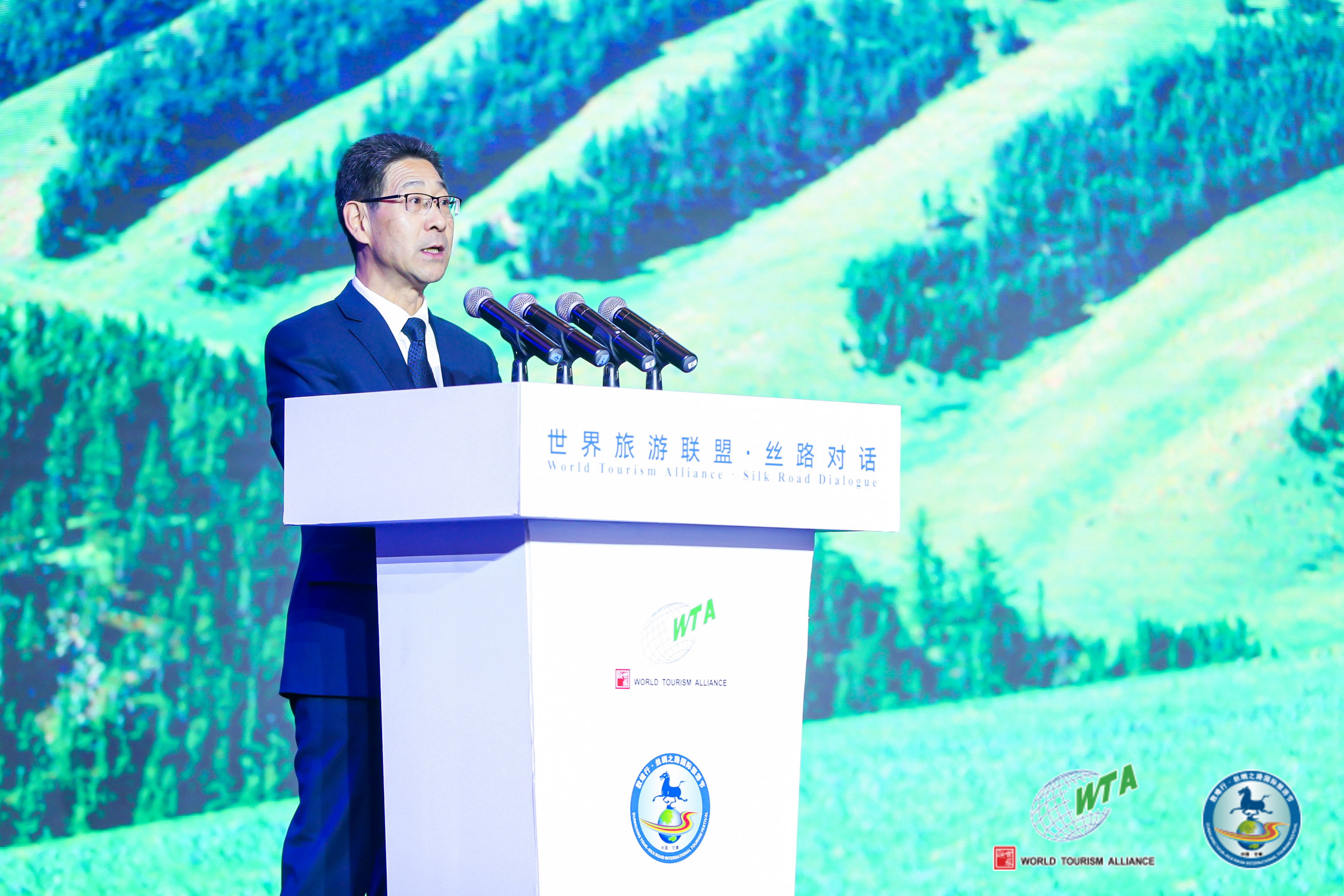 He Xiaozu, Secretary of the Party Leadership Group and Head of Gansu Provincial Department of Culture and Tourism
He Xiaozu, Secretary of the Party Leadership Group and Head of Gansu Provincial Department of Culture and Tourism
He Xiaozu, Secretary of the Party Leadership Group and Director-General of the Department of Culture and Tourism of Gansu Province, delivered a keynote speech entitled “Poverty Alleviation through Rural Tourism in Gansu.” He first introduced the fruitful outcomes in the development of rural tourism in recent years. As to practices, he shared Gansu’s experience in developing rural tourism from multiple dimensions such as policy, funding, demonstration villages, diversification, talent training, and innovation. He pointed out that rural tourism in the future would become better in quality, detail-oriented, customized, experiential and sustainable.
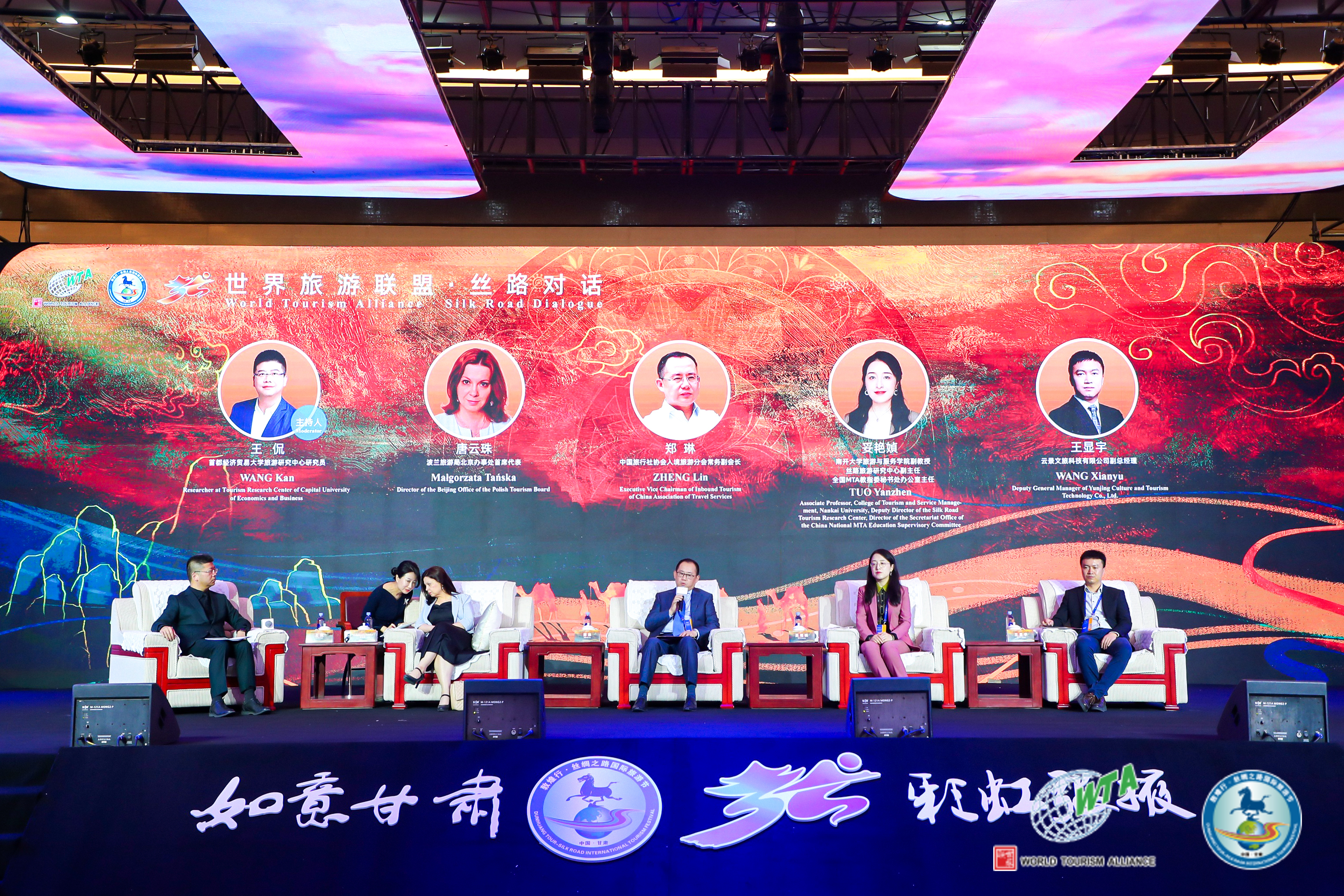 The panel discussion
The panel discussion
At the panel discussion, Wang Kan, a research fellow of Tourism Research Center of Capital University of Economics and Business; Małgorzata Tańska, chief representative of Beijing Office of Polish Tourism Organization; Zheng Lin, Executive Vice President of Inbound Tourism Branch, China Association of Travel Services; Tuo Yanwan, Deputy Director of Silk Road Tourism Research Center of Nankai University and Director of the Secretariat Office of China National MTA Education Supervisory Committee; and Wang Xianyu, Deputy General Manager of Yunjing Culture and Tourism, held in-depth discussions on “The New Journey, New Development, and the New Pattern” and contributed their insights to the development of tourism cooperation under the BRI.
As a new brand of the WTA Dialogue series, the Silk Road Dialogue will become a permanent event. The WTA will actively build communication and dialogue platforms for BRI countries, and is committed to promoting regional tourism coordination and cooperation at the non-governmental level to drive high-quality tourism development in BRI countries.
John McReynolds, SVP of Universal Destinations & Experiences, Visits the Headquarters of WTA
2026.01.29WTA Chair ZHANG Xu Attends 2025 Consultation Meeting of Hainan Provincial Expert Advisory Panel on High-Quality Tourism Development
2025.12.22U.S.-China Study Travel Dialogue Successfully Held in Hangzhou
2025.11.22